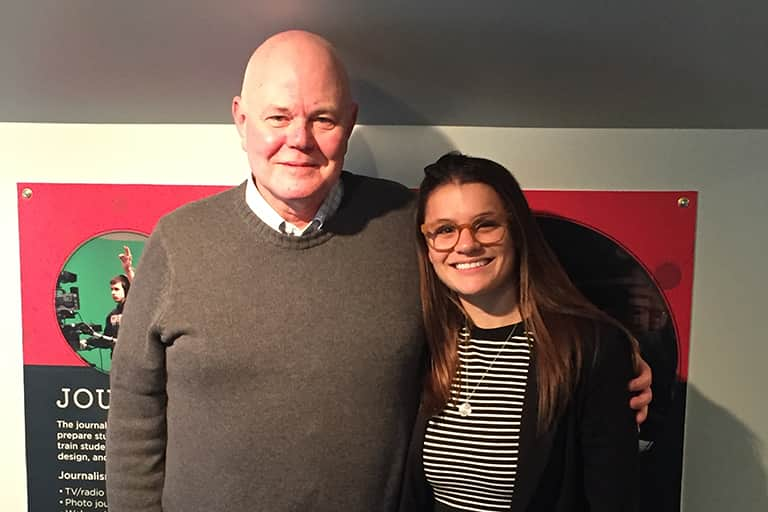The interest to pursue a career in interpersonal communication started at a young age for Samantha Shebib, whose ultimate goal was to be accepted into MSU’s Ph.D. Communication Program. Tracing back to personal experiences, Shebib connected immensely to the field of communication because it is relatable to every demographic.
Unknown“It has always been my dream to be a Spartan,” said Shebib. “I have been lucky enough to get the opportunity to work with the impeccable faculty and students in the Department of Communication. It’s crazy to look back on all those years I put into it and to see my hard work pay off. It’s an extremely rewarding feeling.”
Shebib identifies herself as a post-positivist researcher who studies interpersonal/family communication, nonverbal communication, physiological responses, social support and most importantly, quantitative research methods. She has bounced around several different regions of the world to endure rigorous academic success, beginning with her Bachelor of Science from Arizona State University in May 2014, followed by her Master of Science in Communication Studies from Illinois State University in May 2016.
Most recently, Shebib received the Outstanding Master's Thesis award from the School of Communication at Illinois State University on April 17, 2017. The award is given each year to one student only and was designed to promote a high-quality master’s thesis. Shebib’s thesis was titled "Financial Conflict Messages and Marital Satisfaction: The Mediating Role of Financial Communication Satisfaction."
“At Illinois State, my advisor was Dr. William R. Cupach and my former committee member was Dr. Kevin Meyer, both who nominated me for this award,” explained Shebib. “My thesis was interested in examining the proposed mechanisms through which different financial conflict messages influence marital satisfaction, specifically through the mediating variable of financial communication satisfaction. This empirical work, and the work I continue to do at MSU, is aimed at constructing a theory in marital conflict.”
Shebib believes that marital conflict is an important area to study because of its impact on children that become exposed to it.
“Since conflict is inevitable in all relationships, a theoretical framework to understand why people engage in destructive and dysfunctional strategies when conflict occurs would be extremely beneficial and would add important insight when trying to make sense out of marital discord,” explained Shebib. “Not only do children exposed to marital conflict have a greater risk for a host of behavioral and emotional problems, but it also socializes children to handle conflict the way their parents handle conflict. If I can disentangle and make sense out of marital conflict, well, then I think I can tackle conflict in other relationships, too. Fingers crossed.”
